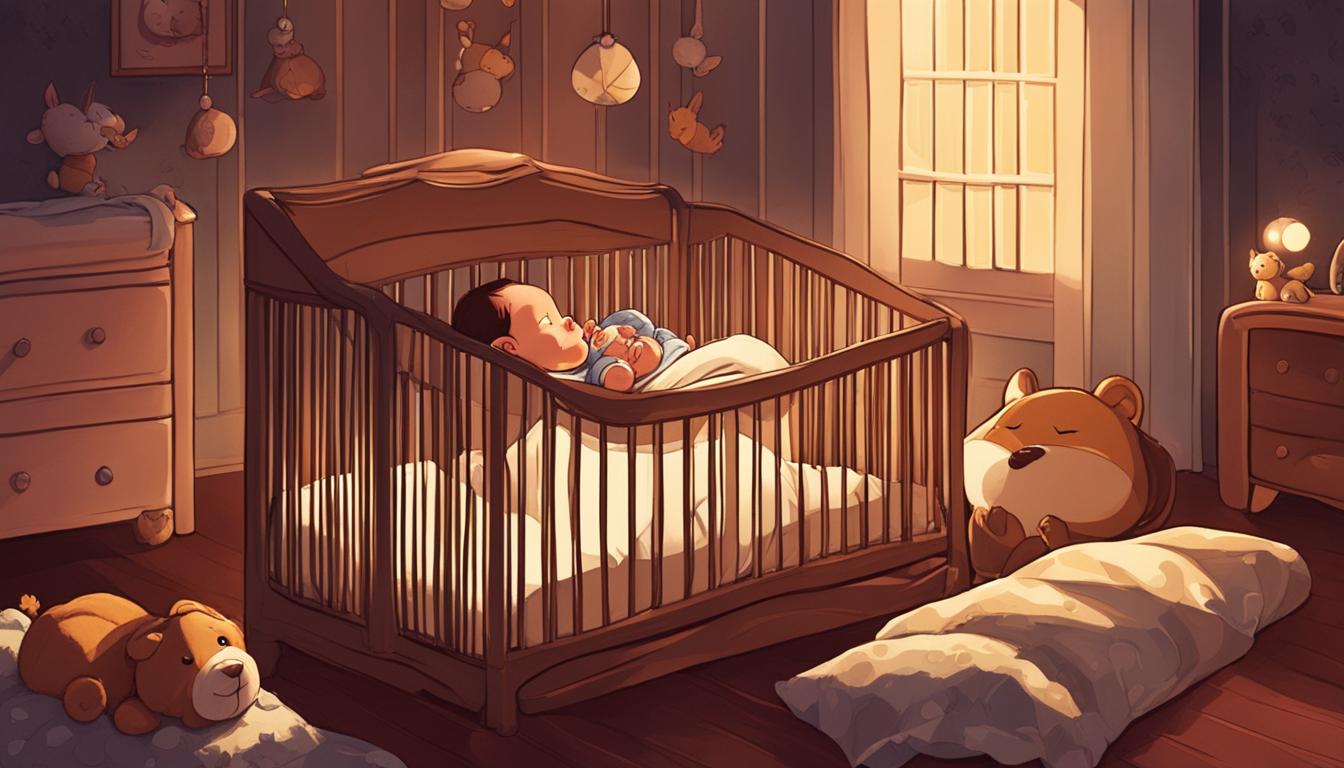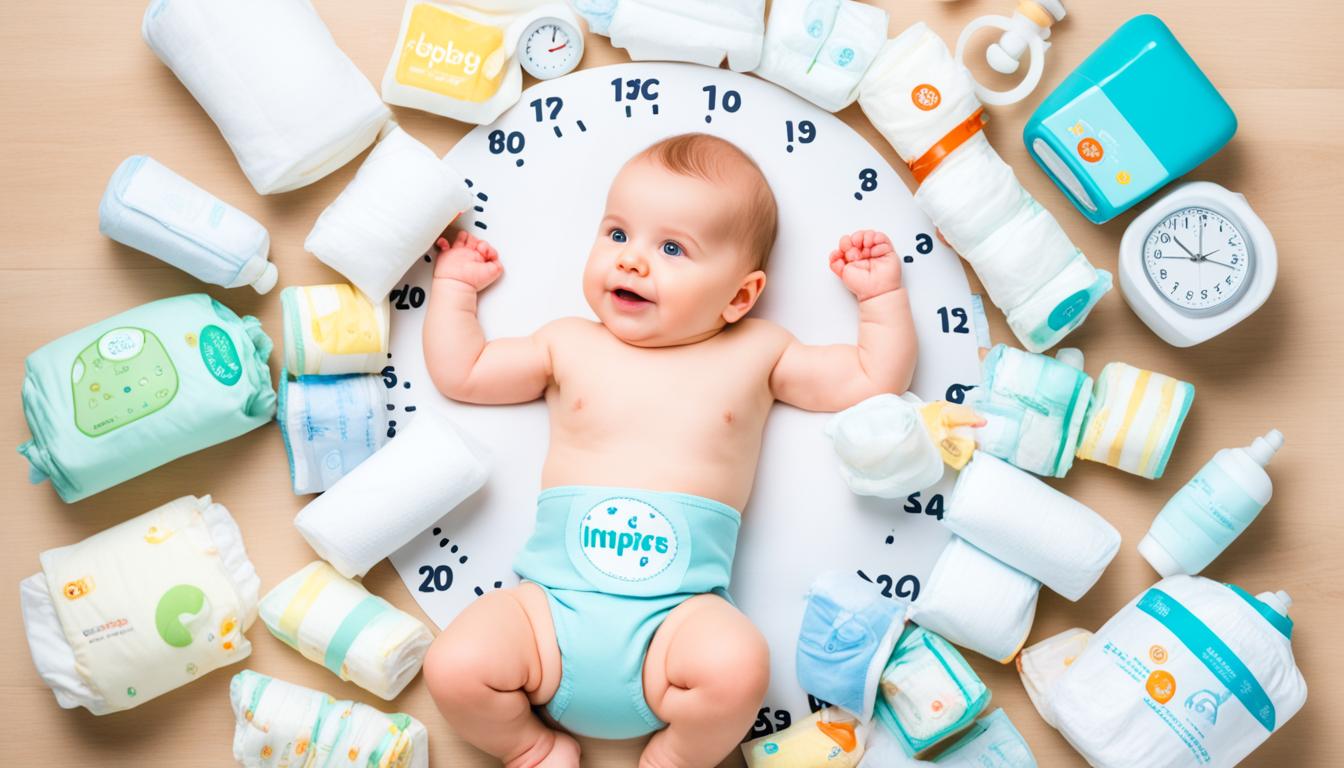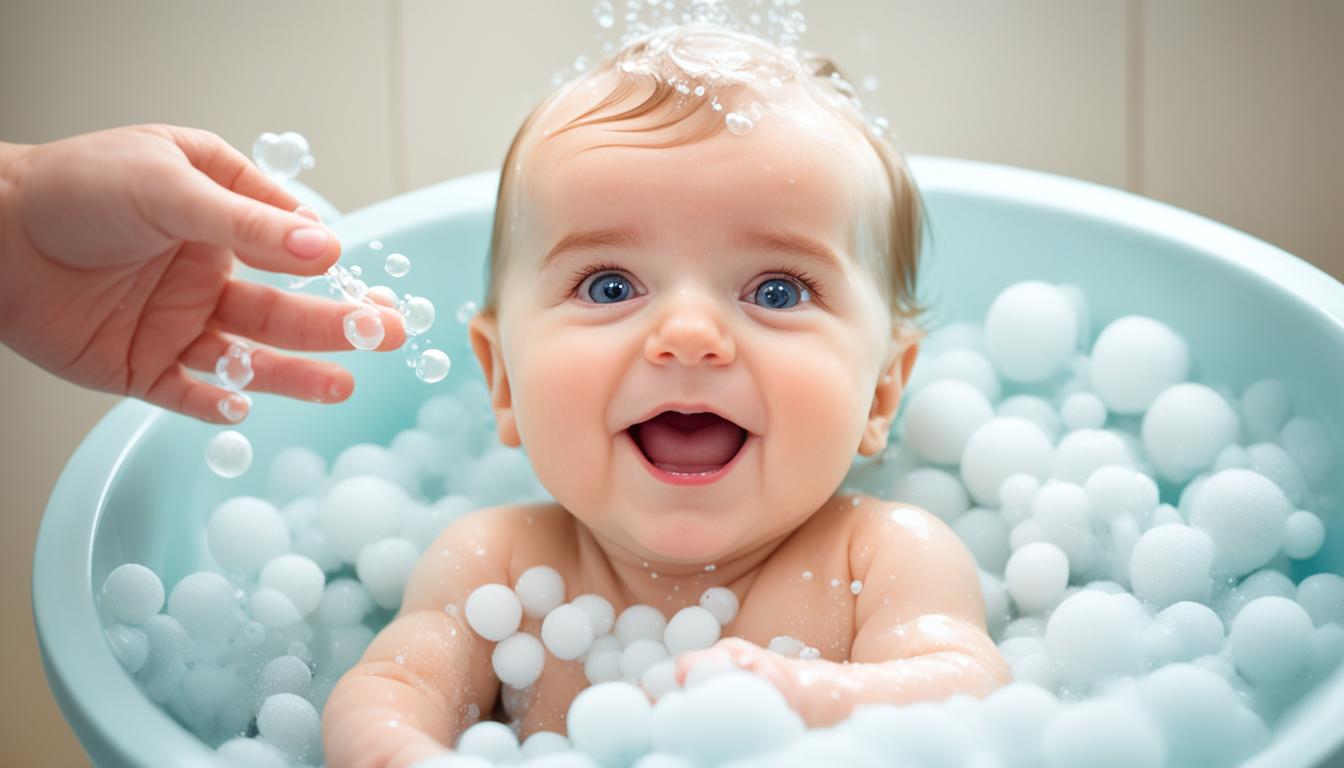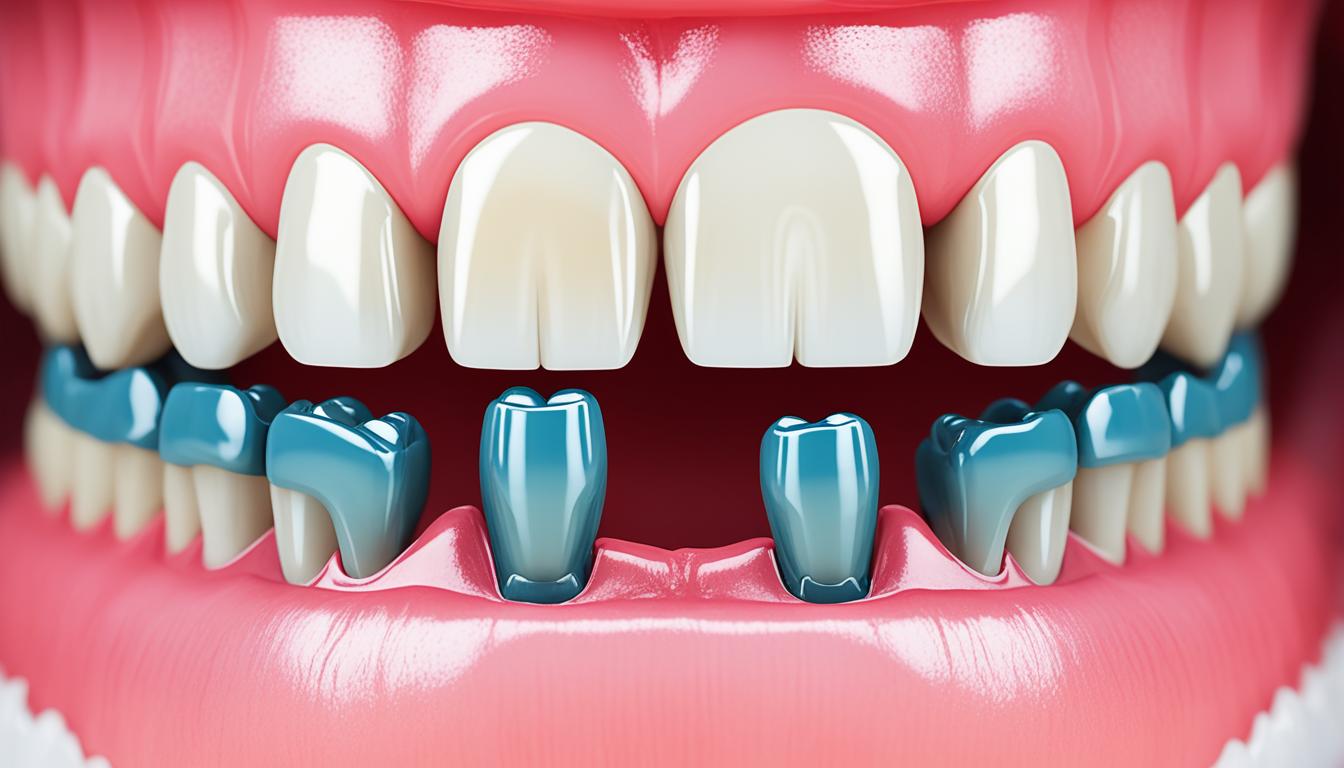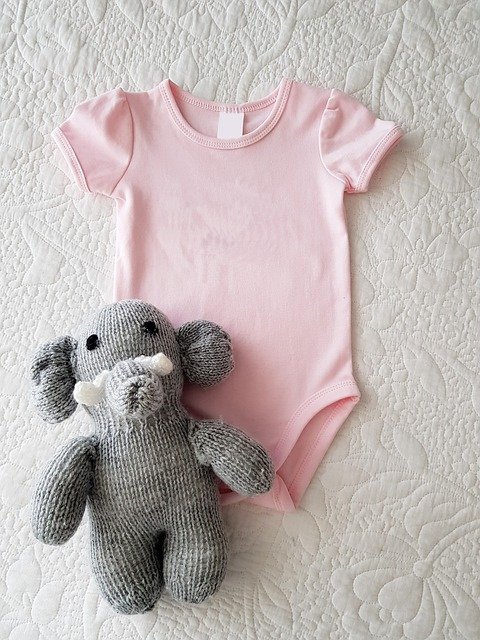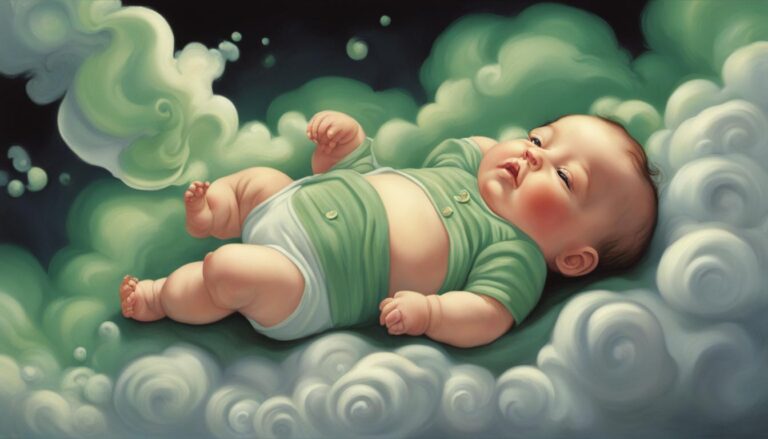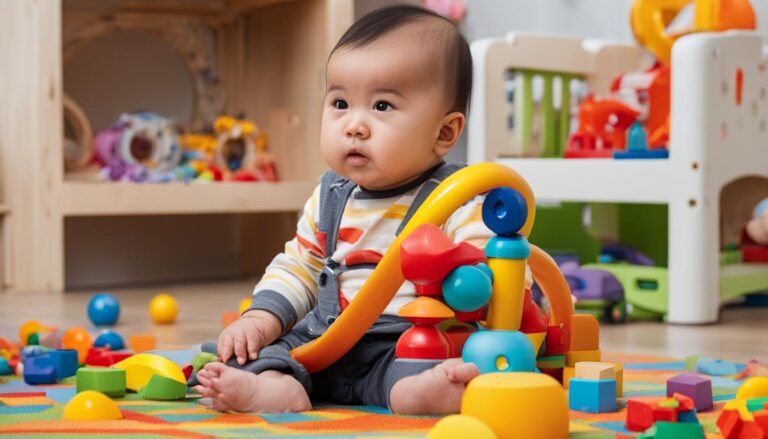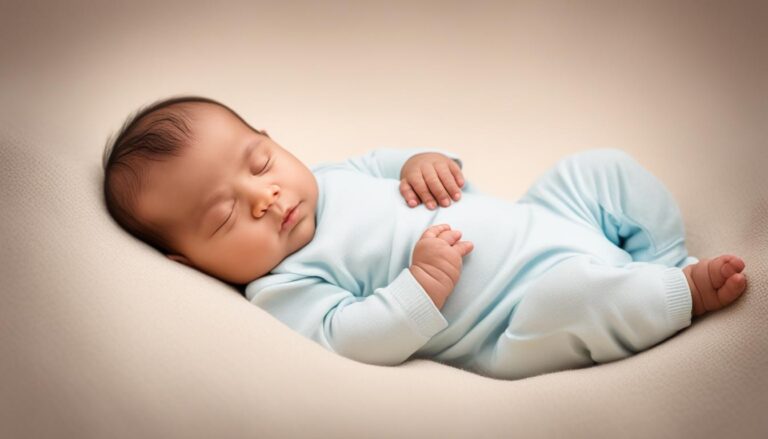Why Your Baby Smiles In Sleep – Cute Reasons!
Have you ever noticed your baby smiling in their sleep? It’s an incredibly heartwarming sight that fills our hearts with joy. But why do babies smile during their slumber? Let’s explore the cute reasons behind this adorable sleep behavior.
First of all, it’s important to know that baby smiles in sleep are completely normal and part of their development. Babies can smile for various reasons during sleep, including as an involuntary reflex, due to gas, or in response to social stimulation.
Some studies have shown that fetuses can start smiling as early as 33 weeks gestation. But the most noticeable and deliberate smiles usually appear around 3 months of age. These smiles are often described as reflex actions and can occur without any apparent reason.
Another reason why babies smile in sleep is when they have gas or are passing stool. These smiles may be accompanied by other body movements or expressions. But don’t worry, it’s a natural part of their digestive system working.
When babies reach around 3 months of age, they also start displaying social smiles. These smiles occur when they engage with an interactive caregiver and show their attentive and joyful engagement.
While we may not fully understand the exact meaning behind these smiles, it’s heartening to think that babies may be dreaming about pleasant experiences or simply expressing their happiness and contentment.
Skip To The Following Sections
Key Takeaways:
- Babies smile in their sleep due to involuntary reflexes, gas, or social stimulation.
- Smiling during sleep is a normal part of a baby’s growth and development.
- Studies show that fetuses can smile as early as 33 weeks gestation.
- The most noticeable smiles usually appear around 3 months of age.
- Interpreting your baby’s smile is subjective, as long as they are healthy and engaged with their environment.
The Science Behind Baby Smiles In Sleep
When it comes to understanding why babies smile in their sleep, it helps to know more about the different stages of sleep. Babies experience two basic types of sleep: rapid eye movement (REM) and non-rapid eye movement (non-REM) sleep. Smiling during sleep is most likely to occur during REM sleep, which is the stage where the eyes move rapidly beneath closed eyelids. During this phase, babies may also experience body twitches, grimaces, and sucking.
Research suggests that smiling during active sleep in babies helps to develop the muscles used to smile and prepares them for smiling and laughter as they grow older. Non-REM sleep has three stages, with the deepest stage occurring after about 90 minutes of sleep. Understanding the different sleep stages can give insights into why babies smile during sleep.
REM sleep is essential for a baby’s brain development and consolidating memory. It is during this stage that they experience intense brain activity, which may contribute to their smiles. As their sleep patterns evolve, babies gradually spend more time in the non-REM stage, with REM sleep accounting for around 50% of their sleep cycle during the first year of life.
By smiling in their sleep, babies may be practicing and honing their social skills while they are not consciously aware. These spontaneous smiles provide a glimpse into their emerging cognitive abilities and the development of their emotional expression. While we may not fully understand the exact reasons behind baby smiles in sleep, it is clear that it is a natural and healthy part of their sleep behaviors.
The Meaning Behind Baby Smiles In Sleep
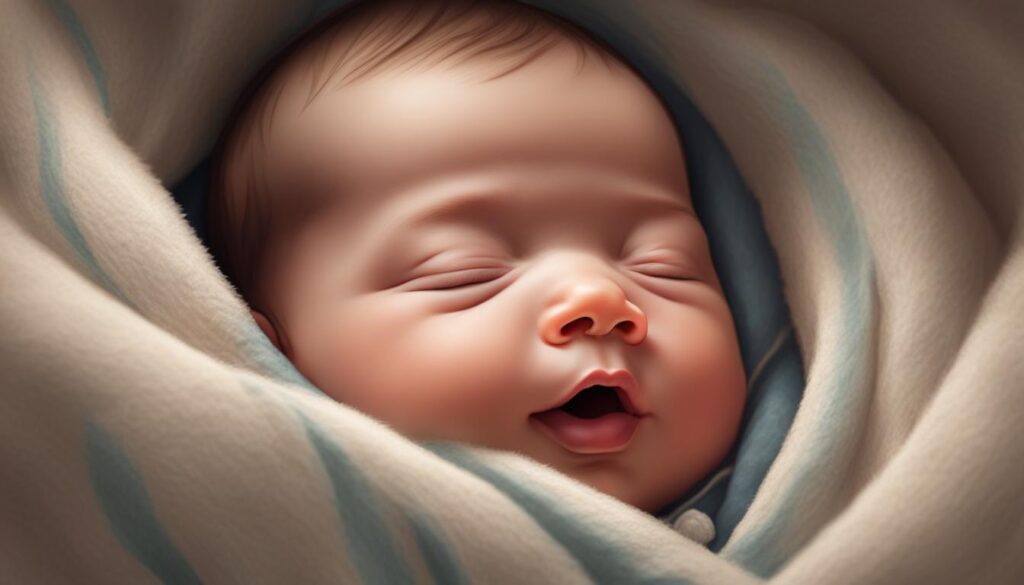
While we can’t know for certain why babies smile in their sleep, there are some theories about the meaning behind their smiles. One theory suggests that babies may be dreaming about pleasant experiences, such as being in the womb or breastfeeding. Smiling during sleep could be a physical response to these positive dream images.
Another theory suggests that a baby’s smile is an expression of joy and contentment. When babies are sleeping, they may be dreaming about pleasant experiences, which causes them to smile.
These theories suggest that a newborn’s smile is a reflection of their emotions and experiences, even though they may not be fully aware of it. Understanding the meaning behind baby smiles can help parents feel connected and reassured about their baby’s well-being.
Facial Expressions While Sleeping
When babies smile in their sleep, it’s not just about the joy they experience. It’s also about their facial expressions and what they can reveal about their state of being. Newborn facial expressions while sleeping can vary and may include smiles, frowns, grimaces, and even eye movements. These expressions can be interpreted as the baby’s way of processing and reacting to their surroundings, even in the unconscious state of sleep.
Infant Sleep Cycles and Smiling
Baby sleep cycles play a role in the occurrence of smiles during sleep. Infants go through cycles of REM (rapid eye movement) and non-REM sleep, just like adults. Smiles are more likely to occur during REM sleep, which is when dreams are most vivid and active brain activity takes place. During non-REM sleep, the body rests and repairs itself. The presence of smiles during sleep indicates that babies are experiencing a mixture of dreams and restorative sleep.
When Do Babies Start Smiling?
Babies can begin smiling as early as in the womb, with studies showing that fetuses are capable of smiling at around 33 weeks of gestation. However, the most noticeable smiles typically begin to appear around 3 months of age. This is an important milestone in a baby’s development and a sign that they are becoming more socially engaged with their environment.
Smiling is one of the ways babies communicate and build connections with caregivers.
It’s important to remember that all babies develop at their own pace, so some may start smiling earlier or later than others. If you have concerns about your baby’s development, it’s always best to consult with their pediatrician.
In the meantime, cherish those adorable smiles and watch as your little one grows and interacts with the world around them.
Encouraging Baby Smiles

While baby smiles in sleep are spontaneous, there are ways you can encourage your baby to smile while they are awake. Interacting with your baby during everyday activities provides opportunities for smiles and promotes their overall development and well-being.
During feeding, dressing, and bathing, make eye contact with your baby and engage in gentle touch. This helps create a positive and nurturing environment that encourages smiles and strengthens your bond.
Reading to your baby is another great way to elicit smiles. Choose colorful and interactive books with engaging illustrations. As you read, use expressive and animated voices, keeping your baby’s attention and inviting them to smile in response to the story.
Singing to your baby can also bring smiles. Babies are naturally drawn to the rhythm and melody of music. Choose lighthearted and upbeat songs, and don’t be afraid to let loose and make funny faces while singing. Your baby will enjoy the interaction and respond with joyful smiles.
When your baby shows positive reactions such as giggling, burping, or sucking, respond with enthusiasm. Smile back, laugh along, and show your baby that their reactions bring you joy. This positive reinforcement encourages them to continue expressing themselves with smiles.
Note: Remember that every baby is unique and may have different preferences. Pay attention to your baby’s cues and adjust your interactions accordingly. What works for one baby may not work for another.
Creating a warm and loving atmosphere filled with smiles promotes healthy baby sleep behaviors and supports their overall development. Embrace these precious moments and cherish the smiles that light up your baby’s world.
The Joy of Baby Smiles In Sleep
Catching your baby’s smiles in sleep is a joyous experience that brings happiness and excitement. It’s a magical moment that reminds us of the beauty of life and the innocence of infancy. These precious smiles can fill our hearts with warmth and reassurance.
While the exact reasons behind baby smiles in sleep may remain a mystery, they are a normal and expected part of a baby’s development. It’s fascinating to think that these smiles may be a reflection of their growth, emotions, and experiences, even if they occur during dreams that we may never fully understand. Watching our little ones smile in their sleep allows us to witness their inner world unfold.
Not only do these sweet smiles bring us joy, but they also help us feel more connected with our baby. When we see them smiling in their sleep, we are reminded of their well-being and contentment. It reassures us as parents that our little ones are safe, healthy, and peacefully dreaming.
As parents, we should cherish these precious moments and create lasting memories. Whether it’s capturing these smiles in a photo or simply savoring them in our hearts, they are reminders of the special bond we share with our babies. So, let’s embrace each sweet smile in their sleep, knowing that we are witnessing a beautiful expression of their innocence and love.
FAQ
Why do babies smile in their sleep?
Babies smile in their sleep for a variety of reasons, including as part of an involuntary reflex, due to gas, and in response to social stimulation. Smiling during sleep is a normal and adorable sleep behavior that reflects a baby’s growth and development.
What are the different stages of baby sleep?
Babies experience two basic types of sleep: rapid eye movement (REM) and non-rapid eye movement (non-REM) sleep. Smiling during sleep is most likely to occur during REM sleep, which is the stage where the eyes move rapidly beneath closed eyelids. Non-REM sleep has three stages, with the deepest stage occurring after about 90 minutes of sleep.
Why do babies smile during REM sleep?
Smiling during active sleep in babies helps to develop the muscles used to smile and prepares them for smiling and laughter as they grow older. Research suggests that babies may be dreaming about pleasant experiences, such as being in the womb or breastfeeding, which could be a physical response to these positive dream images.
When do babies start smiling?
Babies can begin smiling as early as in the womb, with studies showing that fetuses are capable of smiling at around 33 weeks of gestation. However, the most noticeable smiles typically begin to appear around 3 months of age. This is an important milestone in a baby’s development and a sign that they are becoming more socially engaged with their environment.
How can I encourage my baby to smile while awake?
Interacting with your baby during feeding, dressing, and bathing can create opportunities for smiles. Reading to your baby, singing, making funny faces, and matching their reactions with a smile can also elicit smiles. Responding with enthusiasm when your baby shows positive reactions to their environment helps create a positive and engaging environment for your baby.
What is the significance of baby smiles in sleep?
Baby smiles in sleep are a joyous experience that brings happiness and excitement. While the exact reasons behind baby smiles in sleep may remain a mystery, they are a normal and expected part of a baby’s development. These smiles can be seen as a reflection of their growth, emotions, and experiences, even if they occur during dreams that we may never fully understand. Enjoying and cherishing these moments can create lasting memories and strengthen the bond between parents and their little ones.

